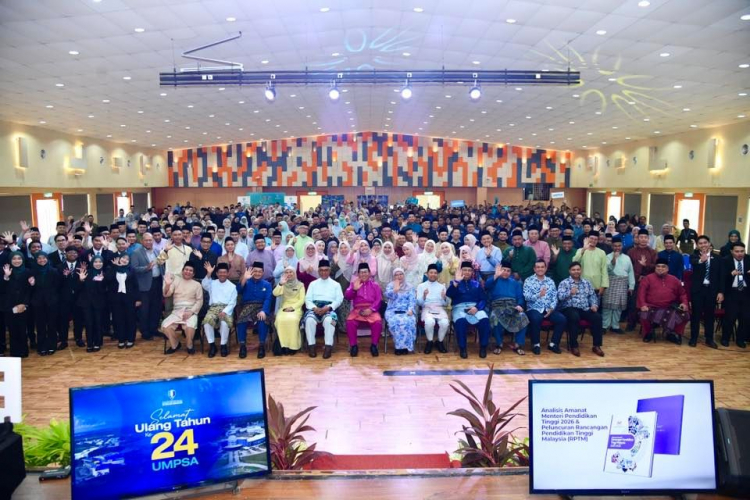Nanotechnology treats cancer focus of UMP researchers
KUANTAN, 30 November 2020 - The triple-negative breast cancer (TNBC) research project to treat breast cancer using nanotechnology has been the focus of researchers from Universiti Malaysia Pahang (UMP).
The project leader and lecturer from the Faculty of Chemical and Process Engineering Technology (FTKKP), Dr. Rajaletchumy Veloo Kutty, 34, said TNBC is a very aggressive and dangerous type of breast cancer.
“There is 15 to 20 per cent of TNBC cases of all types of breast cancer.
“Currently, there is still no specific treatment to treat TNBC and only depends on chemotherapy and surgery.
“Following that, we had the idea to develop an effective treatment for TNBC,” she said.
She added that this anticancer drug has the potential to detect and treat more effectively simultaneously.
“This formulation is good compared to conventional medicine; the dose of nanomedicine used is much lower by targeting periodic release.
“It can last more than ten days in the body with one intake.
“Usually, conventional medicine will require a high dose and takes more than six cycles. It will expose patients to more severe side effects,” she said.
She said this anticancer drug is formulated in the form of nanoparticle fluids including anticancer drug (therapeutic agent) and contrast media (diagnostic agent) for diagnostic imaging examination such as magnetic resonance imaging (MRI) scans.
“Nanomedical applications will help the delivery of the anticancer drug directly to cancer cells without affecting normal cells.
“At the same time, this drug will release a diagnostic agent to cancer cells.
“The diagnostic agent will continue to travel to all tumour areas via the bloodstream. Therefore, the patient’s condition can be monitored from an early stage,” she said.
She further claimed that the laboratory tests that have been conducted yielded positive results to treat TNBC.
“These nanomedical properties are suitable to be applied in the cancer cell system and can kill 50 per cent of cancer cells with a low concentration of 1.64 µg/mL within 24 hours compared to conventional chemotherapy drugs that require four times higher concentration.
“The application of nanotechnology is extensive and unlimited in the medical field.
“With more research, we can provide better cancer treatments and replace chemotherapy that harms patients.
“We hope this study will get the attention of the pharmaceutical industry,” she said.
She also hoped that this study could be improved and realised to help treat cancer patients.
She further explained that for future planning, she plans to combine this anticancer drug with antibodies to detect cancer cells in the bloodstream.
“This aims to ensure that the anticancer drug is targeted directly to the tumour areas more effectively.
“So far, this study is still ongoing and all funding for this project is sponsored by the university internal grant (RDU1803181) and Fundamental Research Grant Scheme (FRGS/1/2017/TK05/UMP/1 and RDU170130).
“We are also trying to secure collaboration from external agencies that can contribute to the development and research of this formulation,” she said.
To date, the actual cost estimate for this formulation has not been confirmed as it is being developed and there is still improvement and formulation optimisation that needs to be carried out to ensure this product is safe and suitable for use.
However, the gross estimate to buy all the materials used in the research reached RM3,000 and could produce approximately 50 tubes of the anticancer drug.
This research, assisted by a student Nurul Isstiffa Iyah Aminuddin, also won a gold medal and the Best Innovation in Chemical Technology award at the Creation, Innovation, Technology and Research Exposition 2020 (CITREX 2020).
She described this award directly encouraged the researchers to continue advancing themselves in research.
By: Nor Salwana Mohd Idris, Corporate Communications Unit, The Office of The Vice-Chancellor
Translation by: Dr. Rozaimi Abu Samah, Engineering College/Faculty of Chemical and Process Engineering Technology
- 165 views









